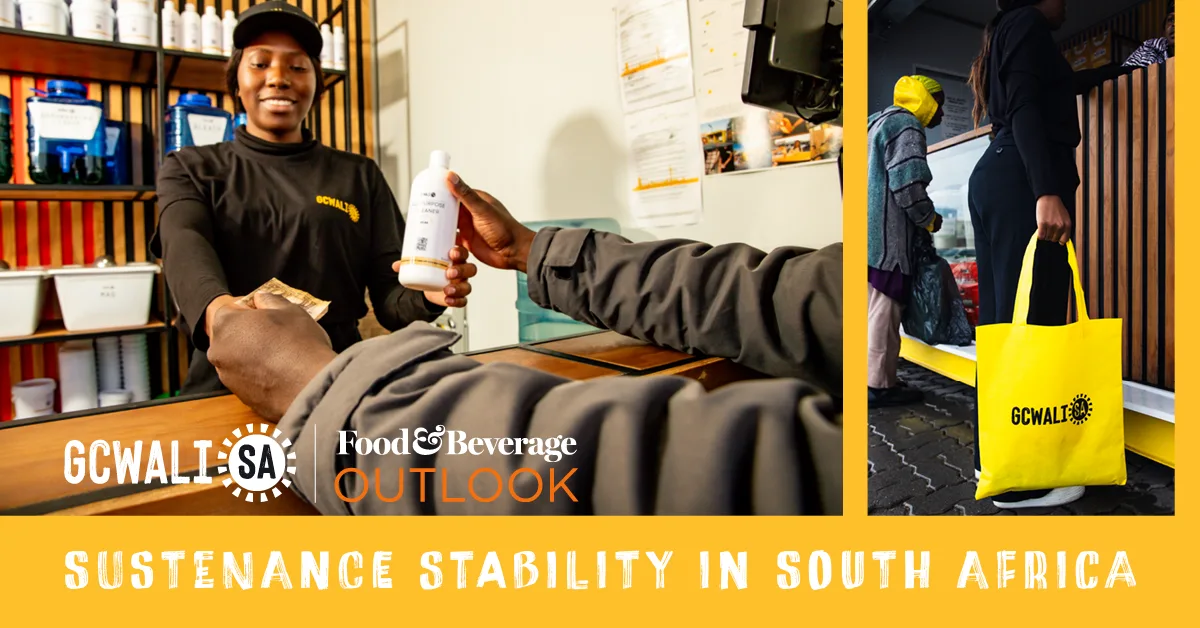Gcwalisa reimagines a future where food security and sustainability are integral to everyday life, making nutritious food more accessible to low-income families. Josephine Katumba, Head of Operations, shares insights on how the company works towards this vision.
SUSTENANCE STABILITY IN SOUTH AFRICA
Food accessibility in South Africa (SA) is under increasing pressure, with a complex mix of rising food prices, climate shocks, and structural barriers deepening the crisis.
According to recent data, almost one in five households experienced moderate to severe food insecurity in 2023, with women-led homes and those relying on social grants disproportionately affected. Meanwhile, food inflation is outpacing income growth, forcing vulnerable families to make difficult choices between nutrition and other basic needs.
The situation is compounded by regional droughts linked to El Niño – a natural climate phenomenon that threatens harvests and drives up costs – whilst millions of tonnes of food are wasted annually amid high levels of hunger affecting more than 20 million people.
Beyond affordability, deeper systemic issues hinder SA’s ability to achieve lasting food security. Weak infrastructure, insecure land tenure, and limited adoption of modern agricultural technologies stifle productivity, whilst restrictive policies complicate climate adaptation. Consequently, food production, access, and distribution remain unequal.
Gcwalisa was conceived during the COVID-19 pandemic as a unique retail outlet aimed at democratising access to nutritious food and essential household products for low-income communities. This approach enables customers to purchase food based on their available funds, rather than adhering to fixed pack sizes.
“Our team witnessed first-hand how communities paid a ‘poverty tax’, forced to buy essentials in smaller, more expensive quantities, leaving families in a cycle of higher costs and limited access to nutritious food. It became clear that something had to be done to break this inequality,” introduces Josephine Katumba, Head of Operations.
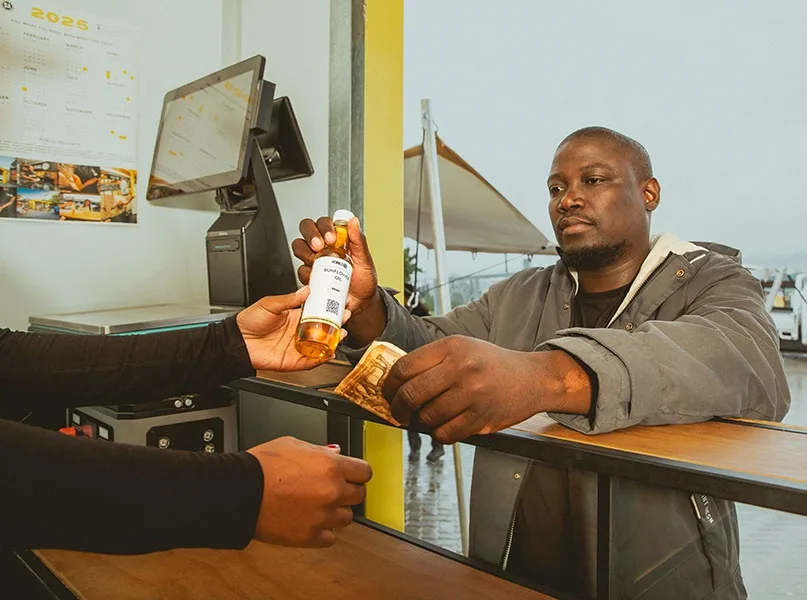
Gcwalisa is a community-driven retail model that provides affordable and sustainable access to everyday essentials through a refill-and-reuse system.
The concept is not new to SA; it was common practice before supermarkets dominated consumer habits, shifting them towards pre-packaged goods. The company draws inspiration from this older model but reimagines it for today’s township economy.
“At its core, Gcwalisa is built on the principle of empowering communities to access everyday essentials at fair prices, whilst reducing waste and creating a more equitable retail system that puts people and the planet first,” Katumba continues.
SHOPPING SUSTAINABLY
At the heart of the business is Gcwalisa’s ‘weigh-and-pay’ model, where customers utilise reusable containers to purchase products by weight, paying only for the exact amount they can afford.
This approach eliminates the poverty tax associated with pre-packaged quantities and reduces single-use plastic waste.
By allowing families to buy staples like rice, beans, and cleaning products in flexible amounts, the company not only makes nutritious food more accessible but also helps stretch household budgets further.
“We reduce the price of food by eliminating costly single-use packaging, which often inflates the retail price of basic goods. Instead, products are sold unpackaged through a refill system, allowing customers to use their own containers or Gcwalisa reusable ones,” Katumba surmises.
Indeed, the model is building a zero-waste culture in SA by normalising packaging reuse and shifting consumer behaviour away from throwaway plastics.
“Each refill at Gcwalisa is a small step towards reducing plastic pollution in township environments whilst also proving that sustainable solutions can be practical, affordable, and community-led,” she emphasises.
By tackling both affordability and waste, the company demonstrates that economic inclusion and environmental responsibility can be mutually beneficial.

“At its core, Gcwalisa is built on the principle of empowering communities to access everyday essentials at fair prices, whilst reducing waste and creating a more equitable retail system that puts people and the planet first”
Josephine Katumba, Head of Operations, Gcwalisa
COMMUNITY EMPOWERMENT
Strategic partnerships with food manufacturers are key to Gcwalisa’s mission of making everyday essentials affordable.
“By collaborating directly with producers, we are able to shorten the supply chain and cut out layers of added cost. This means products can be delivered in bulk to our outlets and sold at a lower price point to customers, without compromising on quality,” explains Katumba.
Manufacturers also benefit by reaching new township markets in a cost-effective manner, whilst innovative packaging and distribution solutions align with sustainability goals.
These partnerships therefore create a win–win – households gain access to cheaper, trusted products and producers unlock new growth opportunities. Over time, this collaboration helps move the broader retail system towards one that is fairer and more inclusive and responsive to the needs of low-income consumers.
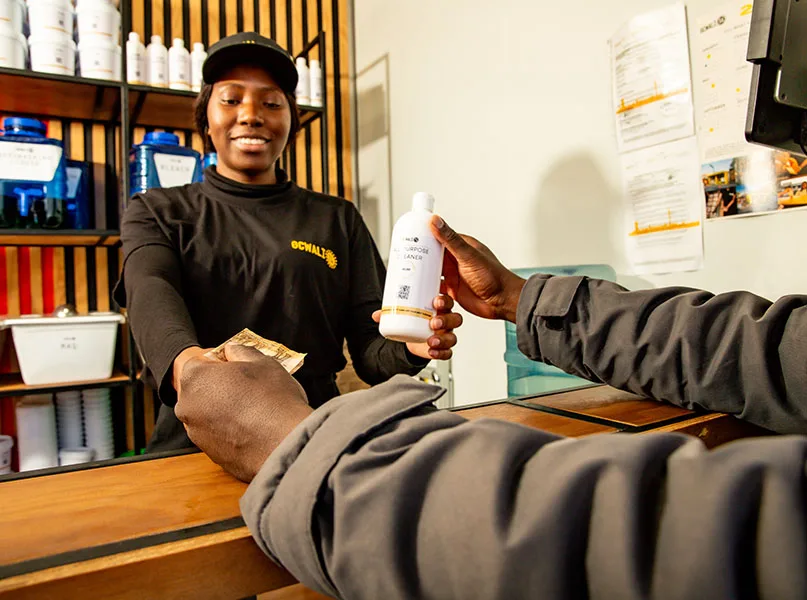
Gcwalisa operates through unique partnerships with community-based organisations (CBOs) who host and run the outlets within their neighbourhoods, ensuring that the business is deeply rooted in the communities it serves, whilst also creating an additional income stream for organisations that are often reliant on donor funding or charity.
“By equipping CBOs with training, stock, and the Gcwalisa model, we empower them to become retail operators, generating sustainable revenue to support their social missions,” outlines Katumba.
“In return, the company benefits from the trust, local knowledge, and networks that these organisations already hold within their communities, which help build customer loyalty and ensure smoother operations on the ground.”
The result is a symbiotic relationship where CBOs gain financial resilience and independence, and Gcwalisa is able to expand its footprint in a way that is community-led, inclusive, and sustainable.
“By introducing a trusted, nutritious product like Cerevita into our weigh-and-pay system, Nestlé not only reaches underserved consumers but also validates our model”
Josephine Katumba, Head of Operations, Gcwalisa
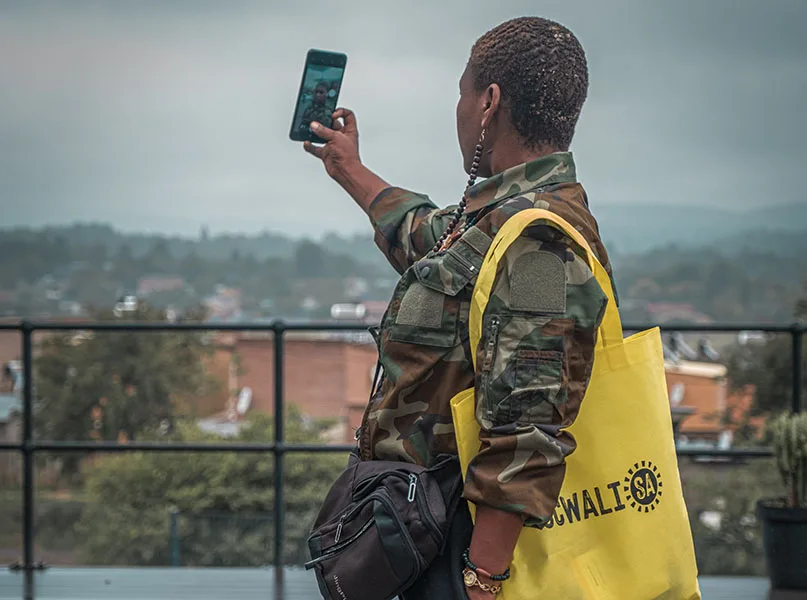
DRIVING CHANGE
Two recent projects highlight how Gcwalisa is scaling both its impact and capabilities.
Firstly, the reuse pilot, conducted in collaboration with the German Agency for International Cooperation (GIZ) and Circular City Labs in Alexandra, tested Gcwalisa’s refill and reusable packaging model.
“Customers were encouraged to return and reuse containers, helping us measure real-world behaviour change and build the foundations of a circular economy at the township level,” Katumba prides.
“The success of the initiative not only reduced plastic waste but also empowered local young women who were trained as ambassadors, reinforcing our commitment to both environmental and social impact.”
The pilot’s outcomes have since secured additional investment and positioned Gcwalisa as a practical case study for reuse in SA.
“Additionally, we are collaborating with Nestlé to test the Cerevita cereal range through Gcwalisa outlets. This partnership is particularly significant because it highlights the appeal of township refill retail to global brands and signifies a step forward in connecting local communities with reputable products,” she reports.
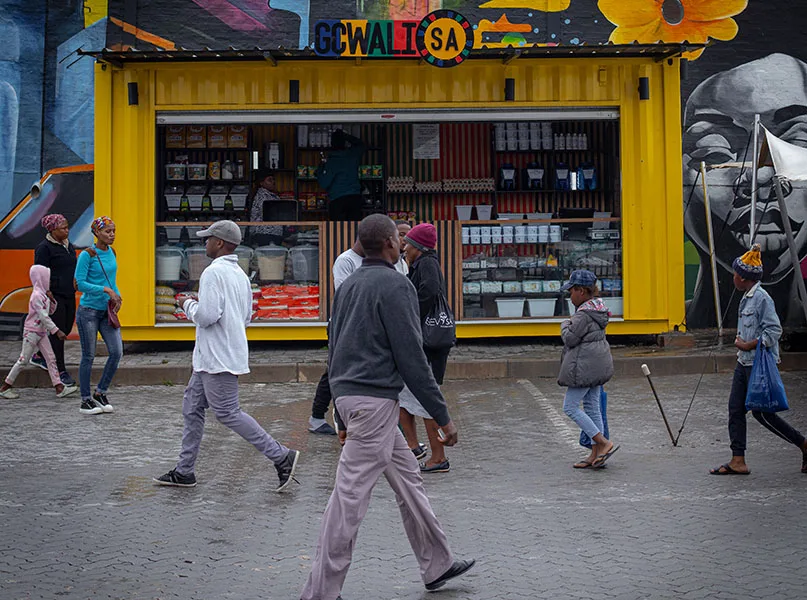
“By introducing a trusted, nutritious product like Cerevita into our weigh-and-pay system, Nestlé not only reaches underserved consumers but also validates our model.”
It also signals a breakthrough in elevating the Gcwalisa brand, strengthening its supply chain, and demonstrates that large-scale players can align with inclusive, community-driven retail solutions.
“Our key priority is to strengthen and expand our team, ensuring we have the right talent and leadership to scale our vision. A resilient team will help us manage growth, enhance community partnerships, and drive innovation,” she specifies.
However, Gcwalisa’s immediate goal is to extend to 25 outlets in Alexandra, illustrating how the refill-and-reuse model can transform access to affordable, nutritious essentials at a community-wide level.
“The Alexandra expansion will improve our reach and impact, generate new jobs, create additional income streams for local organisations, and further prove the viability of inclusive, township-based retail.
“At the same time, we will continue to cultivate partnerships with manufacturers and funders, building the foundations to implement this model beyond Alexandra and into other townships across SA,” Katumba passionately concludes.



